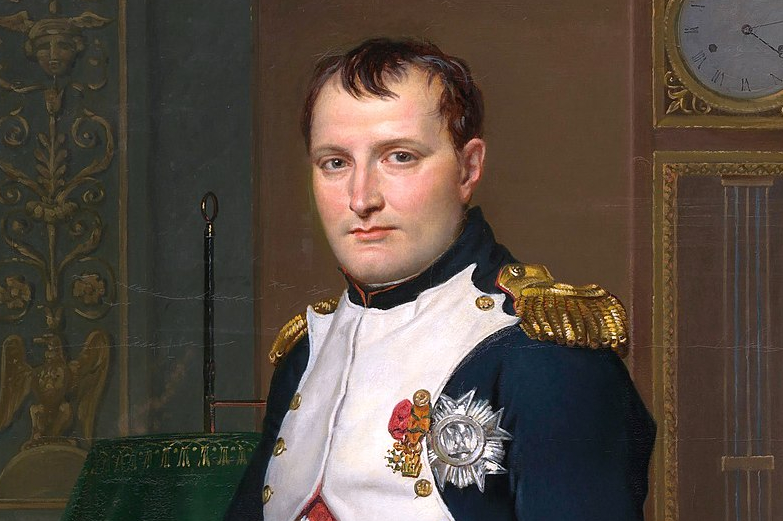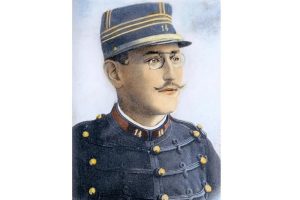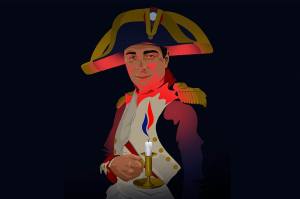Two hundred years ago today, Napoleon Bonaparte closed his eyes for the final time. A man born to relative obscurity in Corsica, he was lifted by merit to become Emperor of the French and conqueror of Europe. But the fault of his ambition and the might of his enemies ultimately led to his defeat at Waterloo. Napoleon died in British captivity on St Helena. Even in death, though, it is hard to doubt that Napoleon not only shaped the modern world, but still influences it today.
France’s current president Emmanuel Macron is often compared to Napoleon. As John Keiger has pointed out, Macron appears to share Napoleon’s obsession with the British. But it would be a mistake to think it is only Frenchmen who look to their country’s most famous leader for inspiration. A senior British minister recently told Jonathan Sumption that ‘something more ‘Napoleonic’ was needed’ to deal with the coronavirus pandemic. He was far from alone in making such a comparison.
As Nazi bombs fell during World War Two, it was not a bust of the Duke of Wellington which sat on British prime minister Winston Churchill’s desk — it was Napoleon. A generation earlier, during World War One, some Britons wished they could fight under the Emperor’s command as they mused that only a ‘great’ military mind like Napoleon’s could break the brutal trench deadlock. During the height of the Great War, in 1915, the Times of London informed readers that the British had come to appreciate Napoleon as a ‘great Emperor’.
What did Napoleon do to achieve such long-lasting admiration, even from the descendants of his enemies?
General Bonaparte was a gifted soldier, but it was also his flair for administration during the French Revolutionary Wars which cemented his reputation. Using his naturally inquiring mind, he issued orders to reorganize almost the entire governmental system of Malta, from street cleaning to education, in just six days. Likewise, in Cairo, Napoleon oversaw a reorganized system of central and provincial governance. A portable library accompanied Bonaparte to Egypt along with an army of intellectuals who produced ground-breaking studies, not least in the field of Egyptology with the discovery of the Rosetta Stone. Napoleon’s inquisitiveness, organizational skills, his respect for experts and his talent for administration were reflected in one of his most enduring legacies, the Napoleonic Code.
The Code, like Napoleon’s entire system, was a synthesis of the old order and the new, a compromise which ended damaging revolutionary instability. It provided the foundation for the legal systems of many countries throughout the world and elements of it are still in force today. Compromise meant serious setbacks for some — the Emperor’s attitudes towards women and slavery were particularly disagreeable. Yet Napoleonic France compared favorably in several ways to its enemies. Death sentences fell greatly under Napoleon and French citizens arguably enjoyed greater economic prosperity than British subjects. Although some of the plebiscites which legitimized Napoleon’s rule were altered, they still enfranchised far more people than the corrupt British electoral system did for decades.
The popular image of Napoleon is, of course, still largely that of a military commander. At Austerlitz in 1805, he defeated the Emperors of Austria and Russia, igniting the end of the Holy Roman Empire. Again, at Jena the following year, Napoleon’s Grande Armée vanquished proud Prussian forces.
Detractors argue that Napoleon loved fighting. Supporters insist he desired peace and often acted defensively. A key point of contention is Napoleon’s escape from exile on Elba in 1815. During this extraordinary event, the Emperor retook Paris without firing a shot and promised peace under a reformed, more liberal system which included abolition of the slave trade. Coalition forces declared him an outlaw. Waterloo followed. At worst, Napoleon’s sincerity is doubted, and he is held responsible for unnecessary bloodshed. At best, his ideas are considered worth fighting for.
In defeat, Napoleon still shaped the world. The British Empire achieved much of its supremacy owing to the defeat of its French rival. That defeat helped to define British identity as Victorians took pride in conquering what they almost universally described as a ‘military genius’. Even Bonaparte’s blunders in Spain and Portugal helped spark wars for independence in Latin America which shaped the nations we know today.
With Napoleon’s death, a legend was born. This was built partly on a myth of his own making. It portrayed him as a glorious, liberal Emperor who could hardly do any wrong. It’s right to avoid uncritical hero-worship. But Napoleon’s detractors too often convey the ‘black legend’ of Boney the tyrannical monster. While the truth may lay somewhere in-between, the legend had a powerful world-shaping influence of its own.
In Britain, it provided a useful symbolic contrast for working men to use against Wellington’s Tory politics. In France, it partly inspired Napoleon’s nephew, Napoleon III, to strive towards a liberal Empire, championing universal male suffrage and promoting the ‘principle of nationalities’. This had considerable effect in Italy where the actions and ideas of both Napoleons helped to bring about Italian unification.
Revere or despise him, Napoleon’s legacy in shaping the modern world is hard to deny.
This article was originally published on The Spectator’s UK website.


















